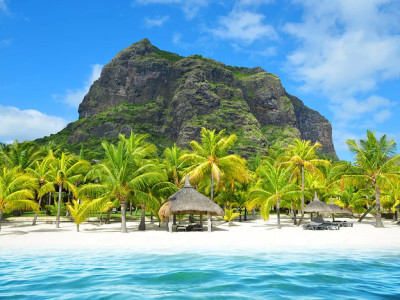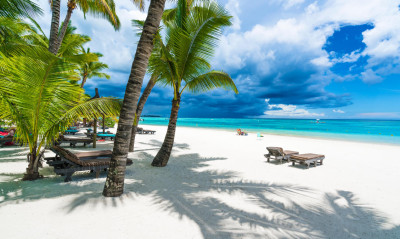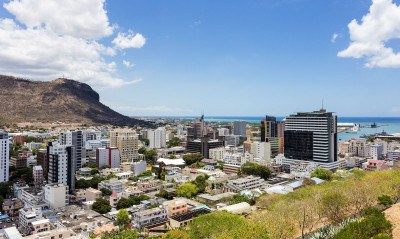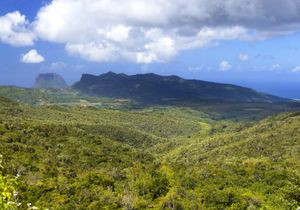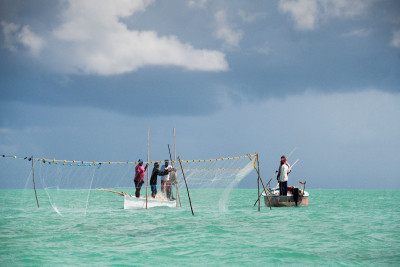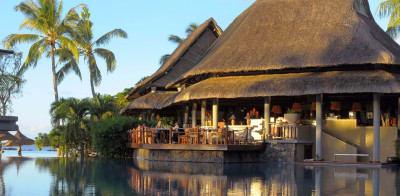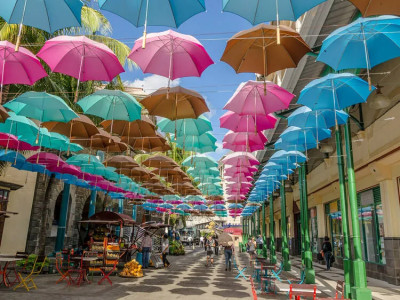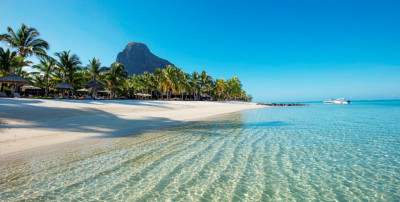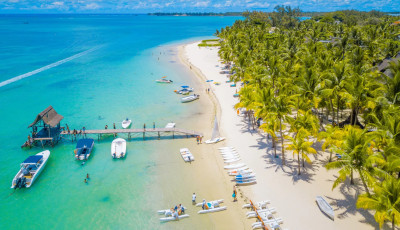Mauritius: planning a trip
Updated: September 16, 2024
Mauritius is an island nation located in the Indian Ocean, near the southeastern coast of Africa. This paradise is known for its snow-white beaches and turquoise lagoons. The climate of Mauritius is tropical, which makes it a popular vacation destination all year round. The capital of the country is Port Louis, and the former capital Mahebourg is home to Sir Sivusagur Ramgoolam International Airport (code - MRU). The population of the island is about 1.3 million people.
- Best time to travel to Mauritius
- How to get to Mauritius in 2024
- Do I need a visa to Mauritius?
- Currency in Mauritius
- Animal world of the island
- Official languages of Mauritius
- Traffic on the island
- Mauritius beaches
- Outdoor activities and entertainment
- Mobile internet on Mauritius
- Mauritius: tour or independent travel?
- Prices in Mauritius
- Food and alcohol in Mauritius
- Mosquitoes in Mauritius
- Useful tips for tourists
Best time to travel to Mauritius
The ideal time to visit Mauritius is the dry season, which runs from May to November. At this time, the temperature is comfortably between 18 and 26 degrees Celsius and the water between 23 and 25 degrees Celsius. In the central part of the island - in the mountains, it can be a little cooler, especially at night, when the temperature can drop to 16 degrees.
The rainy season lasts from December to April, the temperature during this period - from 25 to 33 degrees Celsius, also possible cyclones, but the island still remains attractive to tourists. The temperature of the ocean water at this time - 27 degrees.
How to get to Mauritius in 2024
In 2024, getting to Mauritius from Europe is relatively straightforward, with many airlines offering both direct and connecting flights to the island. Mauritius is served by Sir Seewoosagur Ramgoolam International Airport (MRU), located in the southeast of the island.
Many European cities offer direct flights to Mauritius, making the journey easier and faster. Airlines providing direct connections include:
- Air Mauritius: The national airline operates direct flights from cities like Paris and London
- British Airways: Offers direct flights from London Heathrow (LHR) to Mauritius
- Air France: Provides direct flights from Paris Charles de Gaulle (CDG) to Mauritius
- Lufthansa: Offers seasonal direct flights from Frankfurt (FRA) to Mauritius
The flight duration for direct flights from Europe to Mauritius ranges between 11 to 12 hours.
If a direct flight isn’t available from your city, you can opt for a connecting flight through major hubs such as:
- Dubai (DXB): Emirates offers flights from most European cities to Mauritius with a stopover in Dubai.
- Istanbul (IST): Turkish Airlines provides flights with a stopover in Istanbul from various European cities.
The total travel time for connecting flights is usually between 14 to 18 hours, depending on the length of the layover.
Do I need a visa to Mauritius?
Mauritius is a very tourist friendly country and most countries do not require a visa. Citizens of many countries can stay on the island for up to 60 consecutive days without a visa and no more than 90 days in the last six months in total.. But it is necessary to have a valid passport with at least 6 months before expiry and a return ticket, as well as other nuances - read more in a separate article.
Currency in Mauritius
The official currency of Mauritius is the Mauritian Rupee (MUR), but due to the large number of Europeans, prices for transfers, tourist services and accommodation rentals are often quoted in Euros.
1 Euro is approximately equal to 50 rupees (as of September 2024), but the exchange rate can vary slightly. Money can be exchanged immediately at the airport. Bank cards are widely accepted on the island, even in the famous food trucks, but for small markets and local cafes it is better to have cash at the rate of 200-250 euros for a couple of weeks of travel.
Animal world of the island
There are no poisonous snakes or spiders in Mauritius. The island is known for its safe natural environment and there are no snakes, insects or large predators dangerous to humans among its fauna.
Official languages of Mauritius
The official languages in Mauritius are English and French, but Mauritian-Creole is widely used in everyday life. In most hotels, restaurants and tourist areas, staff speak both English and French.
Traffic on the island
Mauritius is left-hand drive (steering wheel on the right), so if you plan to rent a car, be careful on the roads. Driving on the island is relatively relaxed, but the roads can be narrow and winding. Renting a car is the best way to explore the island. How to rent a car in Mauritius - read in a special article.
Mauritius beaches
Beaches in Mauritius are famous for their snow-white sand, crystal clear water and picturesque landscapes. On them you will make the most Instagram photos! Most of the beaches are surrounded by cazaurine trees under which you can shelter from the sun.
Many of the beaches are quite well equipped - parking lots, toilets and showers. Please note - some beaches are not suitable for swimming due to strong currents. And choosing accommodation on the island - see what beaches are located in one or another part of the island.
Read about Mauritius resorts and beaches in our review article.
Outdoor activities and entertainment
Mauritius offers many opportunities for outdoor activities - diving, snorkeling, airplane and helicopter tours, kitesurfing, deep sea fishing, and trekking on mountain trails in nature reserves.
Mobile internet on Mauritius
4G/LTE coverage in Mauritius is available in most tourist areas and major population centers and local SIM cards are available for tourists, with 5-10 GB of data costing around 8-10 euros. The most convenient way to buy a tourist SIM card is to buy it at the airport itself, other telecom shops on the island may not have them.
But the best option is buying eSim virtual card with an instant install to your phone. With such a card only the Internet will be available and you will be able to receive and make calls via WhatsApp, Telegram and other messengers. A tariff with unlimited data for 15 days will cost you around 50 euros. You can buy such a SIM card from Yesim provider.
Mauritius: tour or independent travel?
Vacation on the island is for different tastes and wallets: if you prefer comfort and do not want to think about planning a trip, then five-star all-inclusive hotels are the ideal choice.
If you are budget-conscious or like to plan your vacation on your own - in this case it is better to go to the island on your own, booking air tickets, accommodation and car directly.
Travel agencies offer a variety of packages including accommodation and excursions. However, many people prefer to travel on their own, with a more flexible approach to planning a trip and visiting new places.
When traveling independently, don't forget to buy travel insurance for the duration of your stay on the island.
Prices in Mauritius
Mauritius is considered a cheap island, but this is one of its advantages - there are no crowds of tourists.
Prices in Mauritius vary depending on the season and the level of comfort you are used to. Accommodation can range from budget gesthouses for 30-50 euros per night to luxury hotels for 500-1000 euros.
The cost of food and alcohol also varies: food in local cafes costs from 5 to 10 euros, in restaurants - more expensive.
Rent a car will cost from 20-25 euros per day.
How much does a tour to Mauritius cost - read in a separate article.
Food and alcohol in Mauritius
Mauritius cuisine is a mix of Indian, Chinese, African and French traditions. Try local specialties such as dhol puris, samosas, fish or chicken curries. Many parking lots by the beaches have the famous food carts where you can sample some pretty good local fast food.
Alcohol is available in hotels, bars and stores, but alcohol prices are higher than in other countries, especially for imported drinks. Among the local drinks it is worth mentioning Phoenix & Blue Marlin beer (~1.5 euros in supermarkets) and rum, which is available also with various spices. Rum in supermarkets starts at 8-10 euros New Grove, Green Island, and premium aged Chamarel rum starts at 25-30 euros. If you prefer wines - pay attention to the excellent selection of wines from South Africa, prices for good wine start from 8-10 euros per bottle.
Mauritius public transport & taxi service
Taxi is one of the most convenient ways to get around the island, especially if you want to explore at your own pace or if you need to get to remote attractions. Cabs in Mauritius operate on a flat rate, although you can sometimes negotiate a price per ride with the driver. Read more about cabs in our article.
Buses are a budget and quite common mode of transportation in Mauritius. They cover most of the island and connect the main towns, villages and tourist areas. The main disadvantage of buses is the very low speed of transportation, so the way from the airport to the capital takes about 2.5 hours instead of 1 hour by cab or rented car.
We recommend renting a car - it will make it much easier for you to move around the island, and the prices will pleasantly surprise you.
Mosquitoes in Mauritius
Mosquitoes can be quite bothersome in Mauritius, especially in the national parks where they are present throughout the year. Although there’s no risk of malaria or dengue fever on the island, mosquito bites can still be irritating. It’s a good idea to use mosquito repellent, which you can easily purchase locally if needed.
Useful tips for tourists
- Traveling on the island is safe, but be careful on roads with left-hand traffic
- Study the information about the beaches, some of them are not allowed for swimming
- English and French are widely spoken
- Water in hotels is generally safe to drink, but elsewhere on the island - drink bottled water
